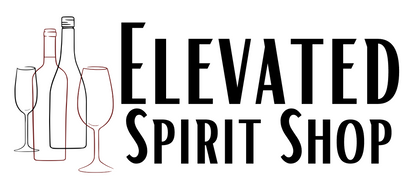Your Cart is Empty
Free Personalization & Fast Delivery
Free Personalization & Fast Delivery
More Gift Types
Does Whiskey Go Bad?
by John Yaylagul September 30, 2025
Introduction
Whiskey is one of the most cherished spirits in the world, admired for its complexity, craftsmanship, and history. But whether you’re a casual sipper or a serious collector, you’ve probably wondered: does whiskey go bad? The short answer is no—not in the way food spoils—but whiskey can lose its quality and character if not stored properly. In this comprehensive 2025 guide, we’ll cover everything you need to know about whiskey’s shelf life, storage, and how to keep your bottle tasting its best for years to come.
Does Whiskey Expire?
Unlike wine or beer, whiskey is a distilled spirit with a high alcohol content (typically 40% ABV or higher). This high proof prevents the growth of bacteria, mold, or other harmful microorganisms. That means whiskey does not expire or become unsafe to drink in the traditional sense. However, whiskey can lose its flavor, aroma, and smoothness over time—especially once the bottle has been opened.
How Long Does Unopened Whiskey Last?
An unopened bottle of whiskey can last indefinitely. Stored properly in a cool, dark place, away from heat and direct sunlight, unopened whiskey will maintain its quality for decades. This is why collectors often buy and hold bottles of rare Scotch, bourbon, or Japanese whisky for years without worrying about spoilage.
How Long Does Opened Whiskey Last?
Once you open a bottle of whiskey, oxygen begins to interact with the liquid, slowly changing its character. While it won’t spoil, the taste may fade over time. General guidelines for opened whiskey:
- 1–2 years: Whiskey remains at peak flavor if properly stored and sealed.
- 2–5 years: Still drinkable, but subtle changes in aroma and taste may occur.
- 5–10 years: Quality may decline significantly, especially if the bottle is less than half full.
The more air in the bottle (as you drink it down), the faster oxidation occurs, which speeds up the loss of flavor.
Signs Whiskey Has Gone Bad (in Quality)
Even though whiskey doesn’t technically “go bad,” there are clear signs that your bottle may have lost quality:
- Strange Smell: Instead of a warm, rich aroma, the whiskey may smell flat, musty, or even sour.
- Cloudiness: Whiskey should always be clear. Cloudiness may indicate contamination.
- Weakened Flavor: Tastes dull, watery, or muted compared to a fresh pour.
- Leaky Seal: A damaged cork or cap allows faster evaporation and oxidation.
Does Flavored Whiskey Go Bad?
Yes—flavored whiskeys and whiskey liqueurs have a much shorter shelf life than standard whiskey. Added sugars, flavorings, and lower alcohol content can cause them to spoil or degrade faster. Typically:
- Unopened flavored whiskey: Lasts 1–2 years before losing flavor quality.
- Opened flavored whiskey: Best consumed within 6–12 months.
How to Properly Store Whiskey
Proper storage can keep whiskey tasting great for decades. Follow these best practices:
- Store upright: Unlike wine, whiskey should be stored upright to prevent the cork from degrading.
- Avoid sunlight: UV rays can break down compounds in whiskey, altering its flavor.
- Keep cool: Store in a consistent, cool environment—ideally between 15–20°C (59–68°F).
- Seal tightly: Always reseal the cap or cork to minimize oxidation.
- Avoid temperature swings: Fluctuations can cause expansion and contraction, harming flavor over time.
Does Whiskey Evaporate?
Yes. Over long periods of time, whiskey can evaporate through imperfect seals. This reduces both volume and proof (alcohol strength). In distilleries, this natural evaporation is called the “angel’s share.” While your home bottle won’t lose as much as aging casks, evaporation can still occur if improperly sealed.
Whiskey vs. Other Spirits Shelf Life
Here’s how whiskey compares to other spirits:
- Whiskey: Indefinite unopened, decades once opened if properly stored.
- Vodka: Indefinite shelf life, neutral flavor lasts longer after opening.
- Rum: Similar to whiskey, long-lasting if unopened.
- Gin: Botanical flavors fade faster than whiskey’s flavors after opening.
- Liqueurs: 1–3 years; added sugars and cream shorten lifespan.
Frequently Asked Questions
Can you drink expired whiskey?
Yes. Even if whiskey has been sitting for years, it remains safe to drink. The worst case is that it has lost flavor and aroma.
Should whiskey be refrigerated?
No. Whiskey does not need refrigeration. Room temperature storage is ideal, though some prefer chilling it before serving.
Does whiskey taste better with age in the bottle?
No. Whiskey only ages while in the barrel. Once bottled, its age is “frozen.” A 12-year-old whiskey remains a 12-year-old forever, no matter how long it sits in the bottle.
Can whiskey mold or grow bacteria?
No. The high alcohol content prevents mold and bacteria growth, which is why whiskey is considered shelf-stable indefinitely.
Conclusion: Does Whiskey Go Bad?
The bottom line: whiskey does not go bad in the traditional sense. Thanks to its high alcohol content, it’s safe to drink indefinitely. However, opened bottles can lose quality over time due to oxidation, evaporation, and poor storage conditions. By keeping your whiskey sealed, upright, and stored in a cool, dark place, you can preserve its flavor for years—sometimes decades.
Ready to explore timeless bottles that last a lifetime? Shop our whiskey collection today and enjoy premium spirits that never go out of style.
Key Takeaways
- Whiskey does not expire or spoil, but it can lose quality.
- Unopened whiskey lasts indefinitely if stored properly.
- Opened whiskey remains drinkable for decades, though flavor may fade.
- Flavored whiskey has a shorter shelf life (6–24 months).
- Proper storage—sealed, upright, cool, and dark—preserves quality.
Disclaimer: This article is for informational purposes only. Always enjoy whiskey and other spirits responsibly.
Also in whiskey
Subscribe
Sign up to get the latest on sales, new releases and more …



